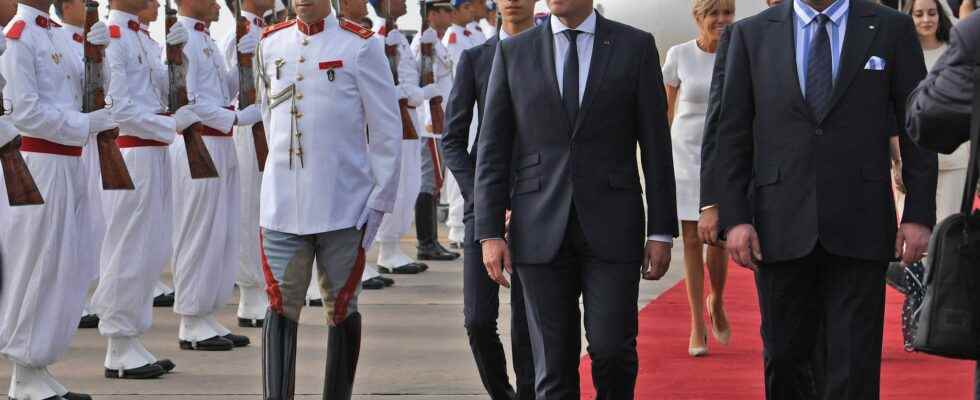France is not in crisis with Morocco. This was assured Thursday, January 26, the spokesperson for the French Ministry of Foreign Affairs. “On the contrary, we are in an exceptional partnership that we intend to nurture”, declared Anne-Claire Legendre during a press briefing, underlining Paris’ desire to register this bilateral relationship “within 10 to 20 years” to to come.
The Moroccan political class and the media close to the government have not taken off since the European Parliament adopted by a large majority on January 19 a resolution worrying about the deterioration of press freedom in Morocco.
The European Parliament also said it was “deeply concerned” by “allegations that the Moroccan authorities have corrupted members of the European Parliament”.
“The smell of gas made him lose his head”
The main accused by Rabat is France, a former colonial power, which is accused of having “orchestrated” an anti-Moroccan campaign in Brussels. “Behind the scenes of this decision hides a country that we thought was a safe friend and partner, but the smell of gas made it lose its head,” said Ahmed Touizi, a majority MP, in reference to the rapprochement between Paris and Algiers, regional rival of Rabat.
“The European Parliament exercises its prerogatives independently,” reacted the spokeswoman for the Quai d’Orsay. “For its part, France maintains a relationship of deep friendship with Morocco, with which it discusses all subjects, including those of human rights.”
On the occasion of the visit of Catherine Colonna, on December 15 and 16, 2022, the tensions between the two countries seemed however to have subsided. Paris and Rabat had declared themselves in favor of a renewed partnership. “It was a very positive visit”, affirmed Anne-Claire Legendre, underlining “the important milestone” that Emmanuel Macron’s visit will constitute, planned in principle during the first quarter of 2023. But press articles have multiplied in recent days, reporting a further deterioration in Franco-Moroccan relations and casting doubt on the forthcoming arrival of the French president.
“Clumsiness, missteps and misunderstandings multiply between Paris and Rabat”, written like this Wednesday, January 25 Young Africa. “Faced with what they consider to be manifestations of hostility on the part of France, the Moroccan authorities no longer hide that a return to normal will be difficult”, underlines the review.
Moroccan parliamentarians “reconsider their relations” with the European Parliament
In response to the European Parliament’s resolution, on Monday January 23, Moroccan parliamentarians unanimously decided to “reconsider” relations with the European Parliament and rejected any “interference” in Moroccan affairs. In a declaration published at the end of the plenary session of the two chambers, the Moroccan Parliament considered that this resolution constitutes “an unacceptable attack against the sovereignty, dignity and independence of the judicial institutions of the kingdom”.
“It has seriously damaged the capital of trust between the two legislative institutions”, is it written in this declaration. Consequently, the Moroccan assembly “has decided to reconsider its relations with the European Parliament and to submit them to an overall assessment”, indicated Rachid Talbi Alami, president of the chamber of representatives.
The European Parliament resolution adopted in Strasbourg was in any case welcomed by Amnesty International, Reporters Without Borders (RSF), and support committees for prisoners of conscience in Morocco. MEPs highlighted the case of Omar Radi, a 36-year-old freelance journalist known for his critical positions towards the government, sentenced to six years in prison for “rape” and “espionage”, charges he deny.
They asked for his provisional release, as well as that of Taoufik Bouachrine, 54, a former press boss imprisoned since 2018, and Soulaimane Rassouni, 50, another journalist sentenced to five years in prison in 2022. All three have were sentenced on sexual charges, which human rights NGOs say were “fabricated” by the Moroccan authorities.
